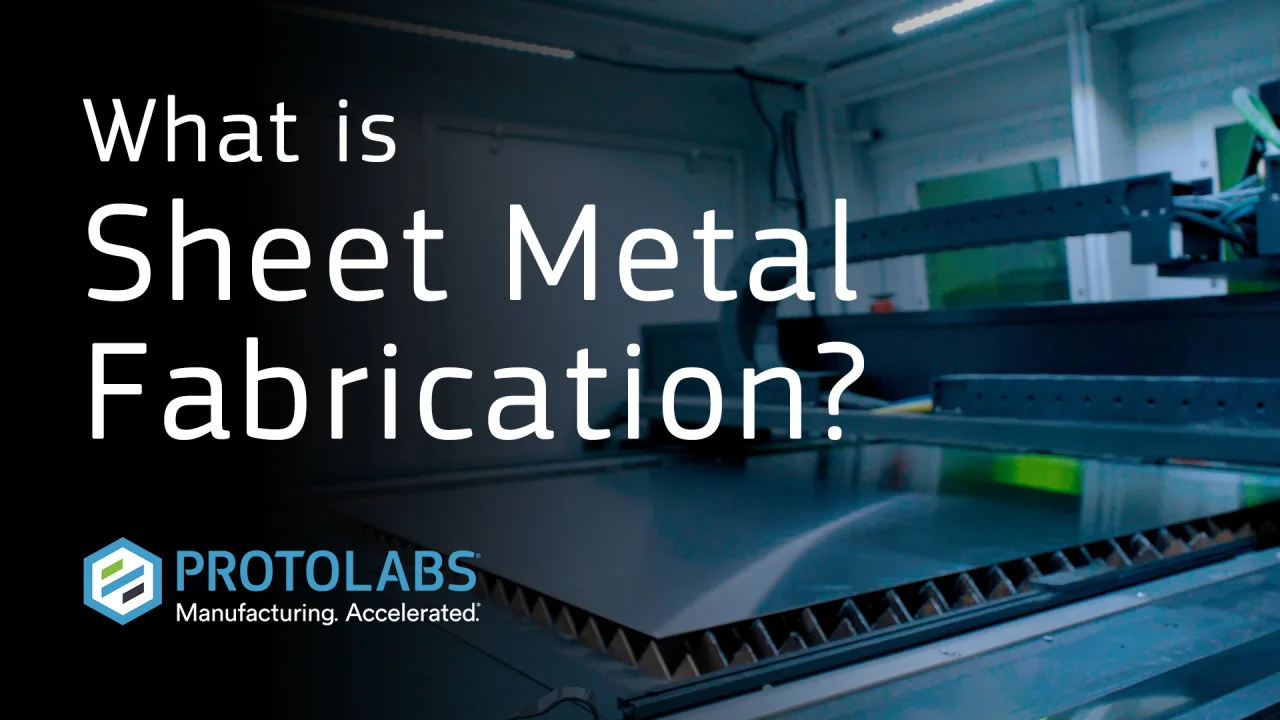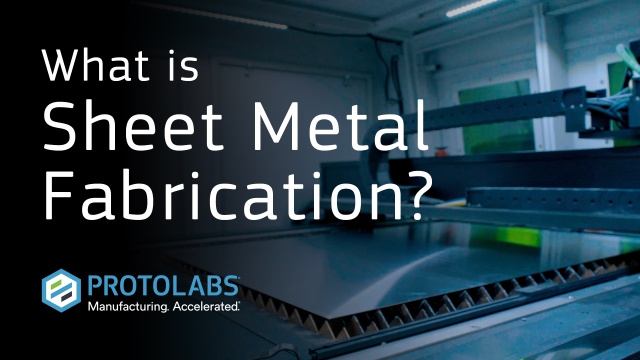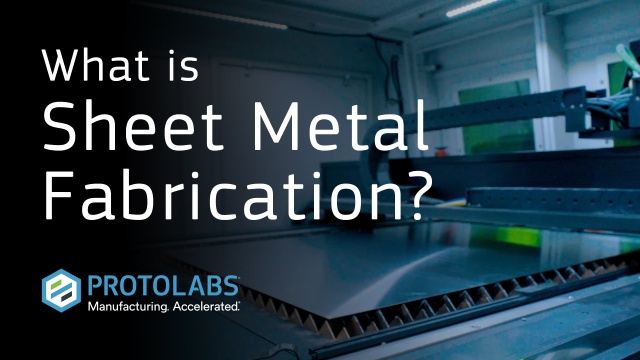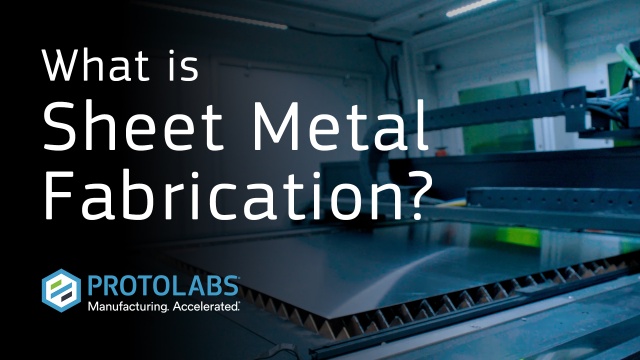Sheet metal fabrication is a vital industry in Saudi Arabia. It shapes the backbone of many sectors, from construction to manufacturing.
In recent years, Saudi Arabia has seen rapid growth in its industrial landscape. Sheet metal fabrication plays a crucial role in this expansion. This process involves cutting, bending, and assembling metal sheets to create structures and parts. It’s essential for building infrastructure, vehicles, and machinery.
Understanding sheet metal fabrication’s role in Saudi Arabia helps appreciate its impact on the nation’s development. This blog post will explore the basics of sheet metal fabrication, its applications, and its importance in the Saudi economy. Dive in to learn more about this vital industry.

Credit: www.protolabs.com
Introduction To Sheet Metal Fabrication
Sheet metal fabrication is a vital process in many industries. It involves shaping metal into different forms. This process is common in Saudi Arabia. It supports construction, automotive, and manufacturing sectors.
Definition And Importance
Sheet metal fabrication is the process of cutting, bending, and assembling metal sheets. It creates parts and structures used in various applications. This process is important because it enables the creation of durable and precise metal components. These components are essential in buildings, machines, and vehicles. In Saudi Arabia, it plays a key role in infrastructure and industrial projects.
Historical Context In Saudi Arabia
Sheet metal fabrication has a rich history in Saudi Arabia. It began with traditional metalworking techniques. Over time, the industry has modernized. Today, advanced machinery and technology are used. This evolution has boosted productivity and quality. The growth of the oil and gas industry also increased the demand for metal fabrication. This demand continues to drive the sector forward.

Credit: saudigrate.com
Types Of Sheet Metal
Sheet metal fabrication in Saudi Arabia involves shaping metal sheets into desired forms. Different types of sheet metal serve various purposes in this process. Understanding these types helps in choosing the right material for specific projects. Below, we explore the common materials used and specialty metals.
Common Materials Used
Common materials in sheet metal fabrication include steel, aluminum, and copper. Steel is strong and affordable, making it popular in many industries. Aluminum is lightweight and resistant to corrosion. This makes it ideal for outdoor applications. Copper is known for its excellent electrical conductivity. It is often used in electrical components and wiring.
Specialty Metals
Specialty metals offer unique properties for specific applications. Stainless steel resists rust and staining, perfect for environments with moisture. Titanium is strong yet lightweight, suitable for aerospace and medical industries. Brass combines strength and malleability, often used in decorative elements and plumbing fixtures. Nickel alloys provide high resistance to heat and corrosion. They are essential in chemical processing and power generation.
Fabrication Processes
Sheet metal fabrication in Saudi Arabia involves various processes to shape and assemble metal sheets into desired forms. These processes ensure the creation of precise and durable components used in different industries. Understanding the main fabrication processes is essential to appreciate the skill and technology behind sheet metal fabrication.
Cutting Techniques
Cutting is the first step in sheet metal fabrication. It involves slicing large metal sheets into smaller, manageable pieces. Different techniques are used based on the material and required precision. Laser cutting is common for its accuracy. It uses a high-powered laser beam to cut through metal. Plasma cutting is another method. It uses a plasma torch to cut thick metal sheets efficiently. Water jet cutting involves using high-pressure water mixed with abrasives. This method is ideal for cutting without generating heat. Each technique has its own advantages and applications.
Forming Methods
Forming methods are used to shape the cut metal pieces into desired forms. Bending is a primary forming method. It involves using a press brake to bend the metal into angles or curves. Rolling is another method. It involves passing the metal through rollers to form curves or cylinders. Stamping is a high-speed forming technique. It uses a die to stamp shapes out of metal sheets. These methods allow the creation of complex shapes and designs.
Joining Processes
Joining processes are critical in assembling metal parts. Welding is the most common joining method. It involves melting the edges of metal parts and fusing them together. Riveting is used for joining thin metal sheets. It involves inserting a rivet through aligned holes and then deforming it to hold the sheets together. Bolting is another method. It involves using bolts and nuts to join metal parts. These processes ensure strong and durable joints.

Credit: www.tpmf.com.sa
Tools And Equipment
Sheet metal fabrication in Saudi Arabia involves various tools and equipment. These tools ensure precise cutting, bending, and shaping of metal sheets. This process is crucial for industries such as construction, automotive, and aerospace. Let’s explore the essential tools and machinery used in sheet metal fabrication.
Hand Tools
Hand tools play a vital role in sheet metal fabrication. They are used for cutting, bending, and shaping metal sheets manually. Here are some common hand tools:
- Snips: Used for cutting thin metal sheets.
- Hammers: Essential for shaping and bending metal.
- Seamers: Used to bend and flatten edges.
- Files: For smoothing rough edges.
- Metal rulers: Ensure accurate measurements.
Machinery And Automation
Modern fabrication relies on advanced machinery and automation. These tools increase efficiency and precision. Here are some key machines:
- Laser cutters: For precise cutting of metal sheets.
- Press brakes: Used to bend metal into desired shapes.
- Shearing machines: Cut large sheets into smaller pieces.
- Welding machines: Join metal pieces together.
- CNC machines: Provide automated control for complex tasks.
The combination of hand tools and machinery ensures high-quality sheet metal fabrication in Saudi Arabia. These tools help create precise, durable metal components for various industries.
Applications In Saudi Arabia
Sheet metal fabrication plays a crucial role in various industries in Saudi Arabia. Its applications span across different sectors, contributing significantly to the country’s development. Below, we explore its key applications.
Construction Industry
Sheet metal fabrication is vital in Saudi Arabia’s construction industry. It is used in building structures, roofs, and facades. The durability and strength of sheet metal make buildings safer. It also helps in creating modern, aesthetically pleasing designs. Sheet metal components are used in HVAC systems, ensuring efficient air flow. This is essential for the hot climate in Saudi Arabia.
Automotive Sector
The automotive sector in Saudi Arabia benefits greatly from sheet metal fabrication. Car bodies, chassis, and other essential parts are made from sheet metal. This ensures vehicles are strong and durable. Sheet metal allows for the production of lightweight cars, improving fuel efficiency. The process also supports the customization of vehicles, meeting diverse consumer needs.
Aerospace And Defense
In the aerospace and defense sectors, sheet metal fabrication is indispensable. It is used to create aircraft components, ensuring high performance. The precision and strength of sheet metal meet the strict standards of these industries. It also plays a role in manufacturing defense equipment, providing reliable and robust solutions. This supports Saudi Arabia’s strategic interests and security needs.
Standards And Regulations
Sheet metal fabrication in Saudi Arabia adheres to strict standards and regulations. These standards ensure the quality and safety of fabricated products. The regulations also guide the processes, from design to production, ensuring compliance with international norms. This section delves into the key standards and regulations governing sheet metal fabrication in Saudi Arabia.
Quality Control Measures
Quality control measures are crucial in sheet metal fabrication. Saudi Arabia follows international standards like ISO 9001. These standards ensure consistent product quality. Regular inspections and testing are mandatory. This includes checking for material defects and ensuring precise dimensions. Quality control also involves monitoring the production process. This guarantees that every step meets the required standards.
Safety Protocols
Safety protocols are vital in the fabrication industry. Saudi Arabia has stringent safety regulations. These include guidelines for equipment use and worker safety. Protective gear is mandatory for all workers. Regular safety drills and training sessions are conducted. This ensures that workers are prepared for emergencies. The regulations also cover the safe handling of materials. This minimizes the risk of accidents in the workplace.
Challenges In The Industry
Sheet metal fabrication in Saudi Arabia faces several challenges. These challenges can impact production efficiency and overall quality. Understanding these challenges helps businesses prepare and adapt better.
Material Availability
One major challenge is material availability. The quality and type of materials used in fabrication are vital. Often, there are shortages of high-quality sheet metal. This can delay projects and increase costs. Local suppliers may not always have the needed materials.
Importing materials is an option but comes with its own issues. High import costs and lengthy shipping times can affect timelines. Political and economic factors also influence material availability. Maintaining a steady supply chain is crucial but difficult.
Skilled Labor Shortage
Another significant challenge is the skilled labor shortage. Skilled workers are essential for precise sheet metal fabrication. Unfortunately, there is a lack of trained professionals in Saudi Arabia. This shortage affects the quality of work and productivity.
Training programs are available, but they are not sufficient. Many workers lack the necessary skills and experience. Companies often invest time and money in training new workers. This can be expensive and time-consuming. Finding and retaining skilled labor remains a critical issue.
Future Trends
Sheet metal fabrication in Saudi Arabia is rapidly evolving. Future trends in this industry promise to bring significant changes. These trends focus on technological advancements and sustainability efforts. Understanding these trends helps businesses stay competitive and efficient.
Technological Advancements
Technological advancements are shaping the future of sheet metal fabrication. Automation and robotics are becoming more prevalent. They increase production speed and reduce errors. Advanced software for design and simulation streamlines the fabrication process. This software ensures precision and consistency. 3D printing is also gaining traction. It allows for rapid prototyping and complex designs. These technologies help companies meet growing demands.
Sustainability Efforts
Sustainability efforts are crucial in sheet metal fabrication. Saudi Arabian companies are adopting eco-friendly practices. They use recycled materials to reduce waste. Energy-efficient machinery is becoming standard. These machines lower energy consumption and operational costs. Water-based cutting fluids are replacing harmful chemicals. This change minimizes environmental impact. Adopting green practices improves a company’s reputation. It also aligns with global sustainability goals.
Frequently Asked Questions
What Is Sheet Metal Fabrication?
Sheet metal fabrication involves cutting, bending, and assembling metal sheets into desired shapes. It’s essential in various industries, including construction and manufacturing.
How Is Sheet Metal Fabricated?
Sheet metal is fabricated using processes like cutting, bending, and welding. These techniques shape the metal into specific forms and structures.
What Materials Are Used In Sheet Metal Fabrication?
Common materials include aluminum, steel, copper, and brass. These metals are chosen for their durability, strength, and versatility.
Why Choose Sheet Metal Fabrication In Saudi Arabia?
Saudi Arabia offers skilled labor, advanced technology, and competitive pricing. These factors make it an ideal location for sheet metal fabrication projects.
Conclusion
Sheet metal fabrication in Saudi Arabia is vital for many industries. It supports construction, automotive, and more. Skilled workers and advanced technology drive this field. The country’s focus on growth boosts fabrication demand. Quality and precision matter most. This process enhances infrastructure and economic development.
Understanding its significance helps businesses thrive. Explore opportunities and stay informed.



